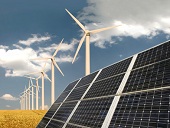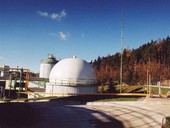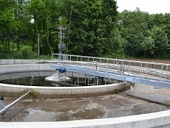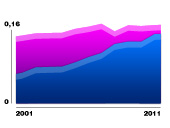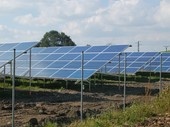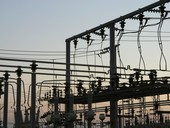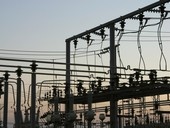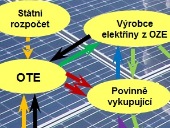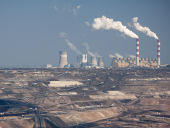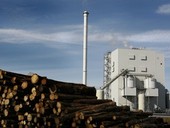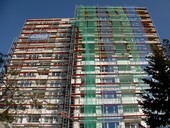Ministry of Industry and Trade (MIT) conducted in early 2012 regular statistical survey. On its basis it is possible to refine the estimate of the supply and installation of heat pumps in 2011. The available information indicates that in 2011 for the Czech market was delivered about 7,000 heat pumps with a total capacity of about 86 MW.
Archiv článků od 5.11.2012 do 11.2.2013
In the past there has been several large blackouts in the world. Risk of such blackout reportedly increases with increasing of share of renewable energy sources in energy mix. In fact neither of previous blackouts were caused by renewables. Main primary causes are age of transmission system components or operator error. Frightening with several days outage caused by renewable sources is exaggerated.
The contribution describes the building and configuration of a newly built ground heat exchanger (GHE), realized under the grant No. 3206/2011/G1 provided by Universities Development Fund of Ministry of Education, Youth and Sports CR. This GHE is designed as an accessory of experimental low-energy dwelling of FME BUT Brno exploited for education in the area of alternative HVAC systems. All relevant operating parameters (including temperature stratification of soil) are continuously monitored. Data acquired this way will be used for validation of recently developed numerical models as well as for later design and energy assessment of GHEs.
Concept Data Support Department of the Ministry of Industry and Trade has prepared this statistical report as a comprehensive national statistics on renewable energy sources. The final part of the report provides statistical data of the categories Energy use of waste and alternative fuels, Hydropower, Wind Power, Photovoltaics, Solar thermal systems, Heat pumps and Geothermal energy.
Concept Data Support Department of the Ministry of Industry and Trade has prepared this statistical report as a comprehensive national statistics on renewable energy sources. First part of the report focuses on the position of RES in the energy balance of the Czech Republic and describes in detail the development of the category of biogas and liquid biofuels.
Sewage water contains organic compounds, thermal and kinetic energy, the amount is about 9 times higher than is needed for cleaning. The biggest source of heat energy are beyond the wastewater treatment plants, hotels, schools, restaurants, hostels, administrative buildings and other public facilities. Also, a wellness center, swimming pools, spas, and hospitals.
Comparison of price developments in eight EU countries shows very interesting facts. Eg. for common Czech household with consumption 2.5-5 MWh / year electricity price increased in 2011 to 229% of the price in 2001. While the same household in Germany to only 115%. While the current price is very close (CR 3.07, Germany 3.50 CZK / kWh).
Ministry of Industry and Trade prepares an elongation of the so-called solar tax. Based on actual law, the tax is charged until end of 2013 on photovoltaic power plants commissioned during photovoltaic boom in 2009 and 2010.
The boom was caused by the previous government because of its slow response to the rapid decline in investment costs of photovoltaics. In contrast to Germany, the feed-in-tarifs (FiT) remained too high (decreased only 5 % yearly) until the end of 2010, although the Government announced its intention to reduce the FiT from 1 January 2010 already on 24 August 2009.
Actually the tax is 26 % of FiT, in fact it is retroactive reduction of FiT.
According to sources from the Ministry for following years the tax will be differentiated by individual halves years. Surprisingly the higher tax will be charged on plants commissioned in first half of 2010, in the second half of the year the tax will be lower. In the second half of 2010 the majority of photovoltaic power plants was commissioned (1295 MWp out of 1953 MWp installed since 2006). Their realization was generally started at a time when it was known government's intention to reduce the FiT. In contrast, the realization of the plants commissioned in first half of 2009 (only about 20 MWp) was generally started at a time when FiT was consistent with investment cost and no information about FiT reduction was published.
Directive 2010/31/EU of the European Parliament and of the Council on the energy performance of buildings requires that new buildings since 2018 (public buildings) and 2020 (all buildings) respectively were buildings with nearly net zero energy buildings. The requirement relates to the all technical systems of the buildings. The paper presents possible solutions in ventilation and air conditioning field in these buildings and presents considerations about possible developments with regard to the requirement of reducing energy consumption.
The article presents an extensive and detailed analytical study that explores in detail the possibility of directing the development of the European energy industry in order to achieve a significant reduction in greenhouse gas emissions and a significant decarbonisation of the energy sector. Roadmap is not to be predictions or plan for further development, its goals are more modest, to lend a hand in finding their own paths to member countries to a sustainable, economically viable and environmentally acceptable energy economy.
The article presents an extensive and detailed analytical study that explores in detail the possibility of directing the development of the European energy industry in order to achieve a significant reduction in greenhouse gas emissions and a significant decarbonisation of the energy sector. Roadmap is not to be predictions or plan for further development, its goals are more modest, to lend a hand in finding their own paths to member countries to a sustainable, economically viable and environmentally acceptable energy economy.
So far, both the feed-in-tariff (FiT) and the green bonus (GB) was paid by locally relevant electricity distributor. From January 1st 2013 the new entity enters into the transaction - OTE (Energy Market Operator). The renewable electricity will be purchased by electricity traders instead of distributors. Newly will be introduced a new scheme - hourly green bonus. The rights of existing manufacturers are fully retained.
Miners’ protest in front of the Office of Government at 31st October 2012 against deleting the "expropriation paragraphs" in the Mining Act and reaffirm the validity of the so-called "territorial ecological limits" in the North Bohemian lignite basin by the Czech Government turned attention of the public to context of surface mining of lignite.
Proposed support for heat production from RES is set for all resources defined by law to a maximum of 50 CZK / GJ (equivalent to approx 0.16 CZK / kWh) with a regular annual increase of 2% because of the anticipated inflation. Compared to the current level of support for the production of electricity from renewable sources this is about 10 times lower.
zpět na aktuální články




